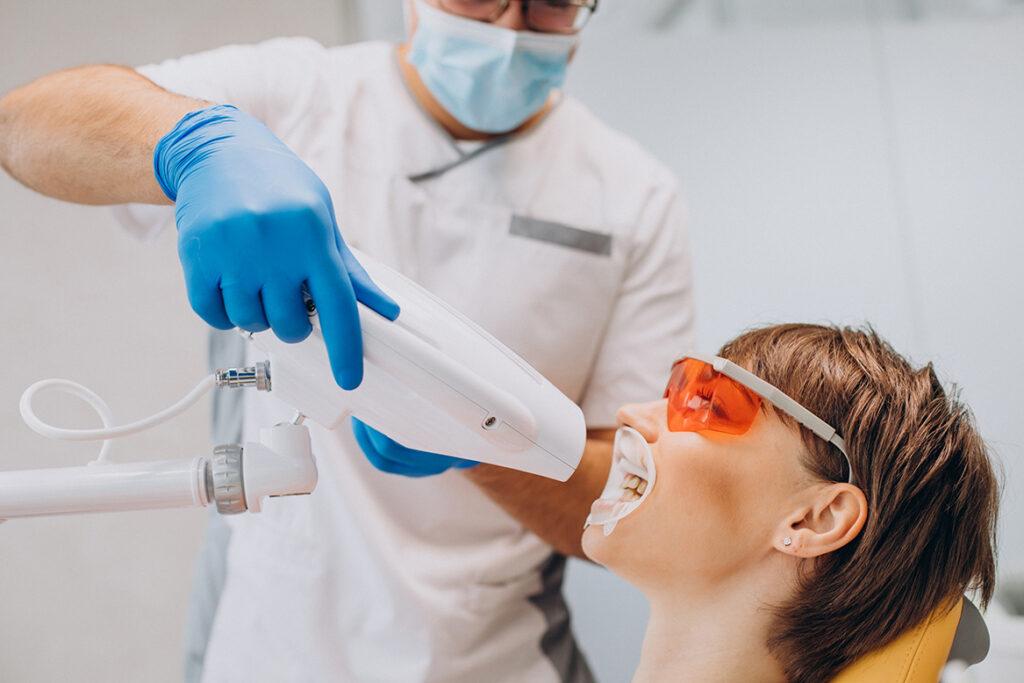Teeth Whitening

Whitening Q&A
In-office teeth whitening is safer for your enamel and more effective at getting the whiteness level you want compared to store-bought whitening kits. In-office whitening treatments also yield very bright results after one application. It may take weeks of using a potentially damaging store-bought kit to achieve the desired results.
Some dental offices, like Allred Family Dentistry, offer professional at-home kits that are just as effective as in-office services but with the convenience of whitening at home. These types of kits are a fantastic solution for busy patients who might not have the time in their schedule for in-office whitening appointments.
Once your desired brightness level is achieved, you likely won’t need to touch-up your smile for at least a year or even longer. This really comes down to your oral care and lifestyle habits. For example, if you smoke or drink a lot of coffee or wine, you may only want to wait six months or so before touching up.
During your normal six-month checkups and cleaning with your dentist, feel free to ask them how your teeth are looking. They can tell you if it’s time for another whitening session.
If you have existing dental problems, like tooth decay, you should take care of these problems before you whiten your teeth. Whitening products are very strong, and if the gel product gets into a cavity, it can seriously damage the tooth as well as lead to a nasty toothache.
It’s a good idea to get healthy teeth whitened to your desired brightness level before getting crowns and similar procedures, like veneers. The materials crowns and veneers are made of can’t be whitened like your natural teeth. By getting your teeth whitened first, your dentist will color-match your new crown or veneers to your ideal smile.
If you’ve been thinking about whitening and have an upcoming appointment for crowns or veneers, be sure to let your dentist know right away.






